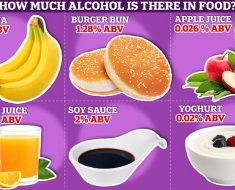Despite its extensive use and popularity, aspartame has become a source of controversy in recent years with several studies claiming the sweetener has adverse side effects.
In this article, we look at the most recent evidence, regarding the safety of aspartame. We also investigate how it might affect weight, appetite, and certain medical conditions.
How safe is aspartame?

The U.S. Food and Drug Administration (FDA) approved aspartame for use in food and drink back in 1981.
Agencies in Europe, Canada, and many other countries also approve its use. Furthermore, the following authorities endorse it:
- World Health Organization
- United Nations Food and Agriculture Organization
- American Heart Association
- American Dietetic Association
In 2013, the European Food Safety Authority (EFSA) conducted a review of hundreds of studies looking into the effects of aspartame.
The EFSA ruled aspartame safe for human consumption and set an acceptable daily intake or ADI of aspartame at 40 milligrams (mg) per kilogram (kg) of body weight.
The EFSA’s ADI for aspartame is 10 mg less than that deemed to be safe by the FDA.
However, the amounts set by both the EFSA and the FDA are far more than most people consume in a day. A can of diet soda, for example, contains only about 190 mg of aspartame. A person would have to consume more than 19 cans of soda to reach the ADI limits.
Effects on body weight
Aspartame contains 4 calories per gram (g), similar to sugar. It is, however, around 200 times sweeter than sugar.
This multiple means only a tiny amount of aspartame is needed to sweeten foods and drinks. It is widely thought to help promote weight loss for this reason.
By contrast, a 2017 review of the latest research found no evidence that the low-calorie sweeteners aspartame, sucralose, and stevioside, were effective for weight management.
Some studies that monitored participants over several years found that increased body weight and waist circumference were associated with regular intake of these sweeteners.
Participants in some studies showed increased body mass index (BMI) as well. BMI is used to decide if a person is a healthy weight or not, with a higher BMI being associated with greater incidence of metabolic disease.
Furthermore, the 2017 review found studies that suggested those who consumed sweeteners regularly might be at greater risk of developing heart disease, diabetes, and stroke.

One way aspartame and other nonnutritive sweeteners may affect body weight is by increasing people’s appetite, which may lead to increased food consumption.
A 2013 review published in Trends in Endocrinology and Metabolism cites several animal studies that report a link between regular intake of nonnutritive sweeteners and increased food intake.
The review suggests sweeteners may increase appetite by disrupting the signaling process that usually occurs when foods with more calories are eaten.
Sweet tastes typically signal to the body that food is entering the gut. The body then expects to receive calories and signals when eating should stop by making a person feel full or satiated.
The same sweet taste is experienced when sweeteners are consumed, but the body receives far fewer calories than it might otherwise expect to.
If this happens regularly, according to the theory, the body unlearns the association between sweet tastes and calories. This reversal means that calorific foods or foods high in calroies will no longer trigger feelings of fullness, which may lead to overeating.
Further research on human participants is needed to better understand the link between aspartame consumption and appetite control.

Many foods and drinks that are labeled ‘sugar-free’ may contain some form of artificial sweetener.
Aspartame is likely to be found in the following:
- diet soda
- gum
- sugar-free candy
- sugar-free ice cream
- low-calorie yogurt
- reduced-calorie fruit juice
Aspartame is also used to make certain medications more palatable.
Examples of medications that may include aspartame are laxatives and chewable vitamin supplements.
Alternatives to aspartame
Those wishing to limit their intake of aspartame can try an alternative natural sweetener from the list below:
- honey
- maple syrup
- agave nectar
- stevia leaves
- molasses
Although the above options may be preferred to aspartame, they should only be used in small amounts. They can be high in calories, similarly to sugar, with little or no nutritional value. Excessive amounts can also cause tooth decay.

Takeaway
There is still much controversy surrounding the safety of aspartame despite approval from authorities around the world.
Recent scientific evidence suggests that regular, long-term intake of aspartame and other low-calorie sweeteners may have negative effects on weight management, but more rigorous research is needed to confirm these findings.
There is little evidence to suggest that occasional consumption of aspartame is detrimental to health for those who are of a healthy weight. For those with obesity, however, regular consumption of low-calorie sweeteners may increase the risk of metabolic diseases, including type 2 diabetes.
Source: Read Full Article





